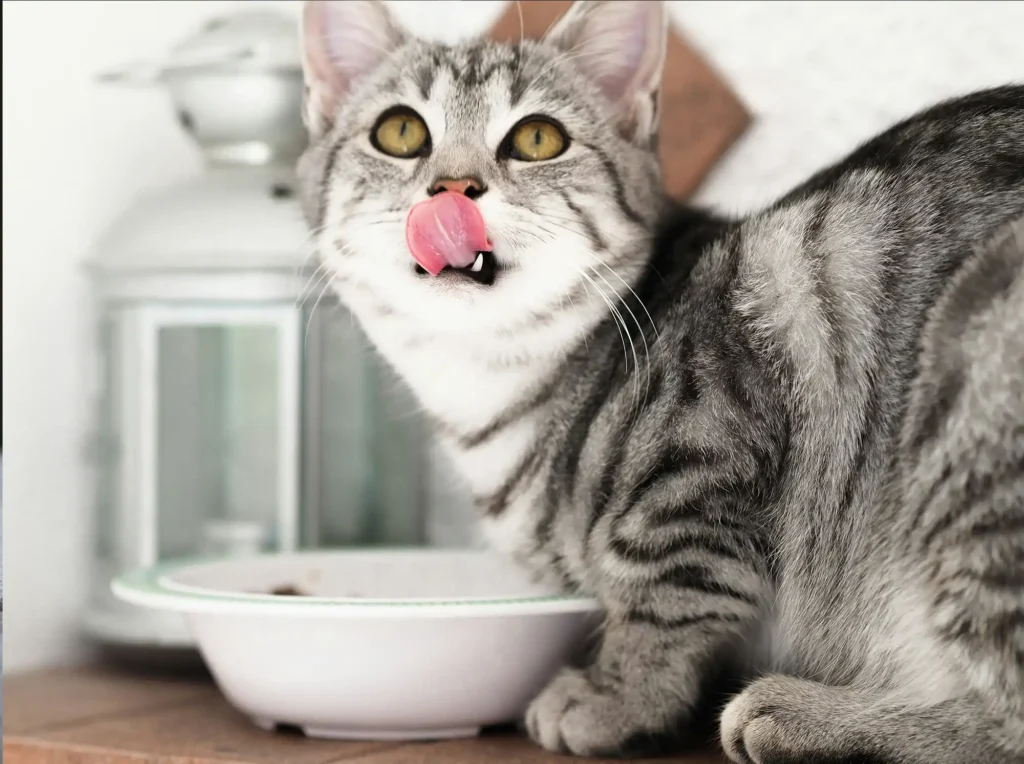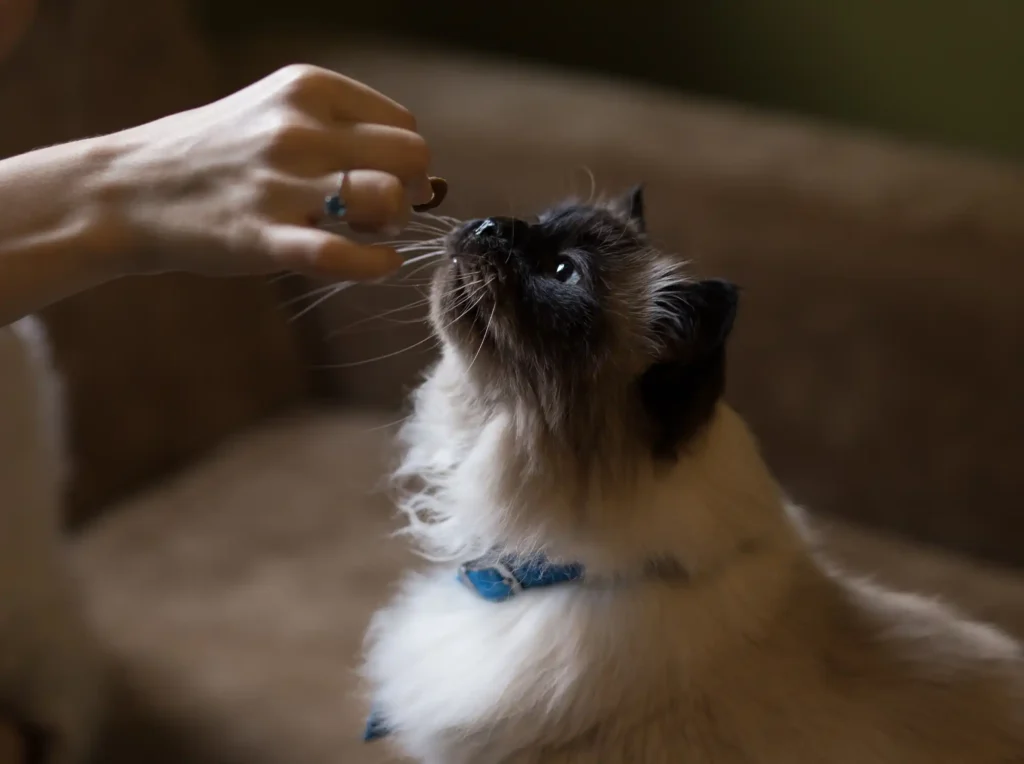Introduction
As responsible cat owners, we all want the best for our beloved feline companions. One of the most crucial aspects of ensuring their overall health and well-being is providing them with a balanced diet as part of keeping your pet healthy. Just like humans, domestic cats require a proper combination of essential nutrients to thrive and maintain optimal health. In this Guide to Cat Nutrition, we will explore the importance of a balanced diet for domestic cats, highlighting the key nutrients they need and the benefits of providing them with a nutritious meal plan. Whether you are a seasoned cat owner or a new pet enthusiast, this article is here to help you understand the significance of a balanced diet and how it can contribute to your cat’s longevity and happiness. So let’s dive in and discover what it takes to keep our feline friends healthy and nourished!
Understanding Your Cat’s Nutritional Needs

Cats are carnivores, which means they need a diet rich in protein and fats. They also require specific nutrients like taurine, an amino acid that’s essential for their heart health. As obligate carnivores, cats require a diet that includes meat. Moreover, cats need to consume water every day to maintain their health. Feeding your cat a diet of dry food only is not enough to keep them hydrated, so it’s essential to include wet food in their diet.
It’s also important to note that cats have specific dietary requirements based on their age, weight, and activity level. Kittens require more protein and calories than adult cats, while senior cats may need a diet that’s lower in calories and higher in fibre. Overweight cats require a diet that’s lower in calories and higher in protein to help maintain muscle mass.
Necessary Nutrients for Cats
Cats’ diets must comprise a variety of nutrients, each playing a vital role:
Protein: The cornerstone of a cat’s diet, protein is necessary for muscle, skin, fur, and overall bodily functions. Cats rely on animal protein, which provides essential amino acids that their bodies cannot produce independently. These amino acids include Arginine, Histidine, Isoleucine, Leucine, Lysine, Methionine, Phenylalanine, Taurine, Threonine, Tryptophan, and Valine.
Fat: A highly concentrated energy source, fat is essential for the absorption of certain vitamins, conducts nerve impulses, and maintains healthy skin and coat. Specific essential fatty acids, like omega-3 and omega-6, must be present in a cat’s diet for optimal health.
Carbohydrates: While cats can derive energy from carbohydrates, they require them less so than protein and fat. Lower carbohydrate consumption is advised as high levels can lead to weight gain and associated health issues, such as diabetes.
Vitamins and Minerals: A broad spectrum of vitamins and minerals are vital for a cat’s bodily functions. These range from promoting bone health to aiding in metabolism and enzyme functions. Vitamins A, D, E, K, and B-complex, along with minerals like calcium, phosphorus, magnesium, and iron, are particularly crucial.
Water: Hydration is paramount. Water aids digestion, temperature regulation, and waste elimination. Wet cat foods can help meet some of these hydration needs.
Choosing the Right Cat Food

When choosing cat food, it’s essential to look for high-quality products that meet your cat’s nutritional needs. The food should contain real meat, and the first ingredient should not be a filler like corn or wheat. It’s also essential to read the label carefully and ensure that the food contains all the necessary nutrients that your cat needs. It’s also important to note that some cats may have specific dietary requirements due to medical conditions. For example, cats with kidney problems may need a diet that’s lower in protein. Bear these factors in mind for proper cat nutrition.
When selecting cat food, consider the following:
Life Stage: Kittens, adults, and older cats have different dietary needs. Look for foods that specifically cater to your cat’s current life stage.
Ingredients: High-quality proteins should be listed among the first ingredients. Named sources of meat or meat byproducts indicate the quality and origin of the protein.
Nutritional Guarantee: Ensure the food is labelled as “complete”
Preferences and Health Conditions: Cats may have specific dietary preferences or medical needs that necessitate special diets. Consulting a veterinarian certified in animal nutrition can provide tailored dietary advice.
Types of Commercial Cat Food
Commercial cat foods come in three main types:
1. Dry Food: Contains 6-10% water and typically includes a mixture of ingredients that can range from meats, grains, and supplements. It’s convenient and affordable but may not meet all hydration needs.
2. Semi-Moist Food: With approximately 35% moisture, semi-moist food can offer a balance between dry and canned food, though it may contain more preservatives.
3. Canned Food: Boasts a moisture content of at least 75%, making it a great source of hydration. Premium canned foods often feature high-quality meats and are palatable, though costlier.
It’s important to choose commercially prepared cat foods that are labelled as “Complete” for good cat nutrition requirements. In the UK and Europe, pet food labelled as “complete” must provide a complete diet that is sufficient to not cause illness through nutritional deficiencies or excesses, according to the FEDIAF (European Pet Food Industry Federation) Nutrition Guidelines.
Other “treats” are advertised as complementary food and are usually fine to feed in small amounts alongside a complete food, but should not be used as meal replacements.
Homemade Diets, Treats & Cat Nutrition Needs

Homemade diets require careful planning to ensure they contain the right quantities and proportions of nutrients. Treats should be given sparingly and not exceed 10 to 15 percent of a cat’s daily caloric intake. Some human foods and raw meats can present health risks and should be avoided.
Feeding Behaviour and Weight Management
A cat’s feeding behavior should be respected, and adjustments made to accommodate their preferences. Cats should maintain a healthy weight to avoid health issues like arthritis and diabetes. Cats on diets or with finicky eating habits require extra attention. Always consult a veterinarian if a cat refuses to eat or is losing weight.
Good Cat Nutrition: Conclusion
Your cat’s health and happiness depend on providing them with a balanced diet that meets their nutritional needs. Proper cat nutrition is vital for their health and happiness. Feeding your cat high-quality food that’s rich in nutrients can help prevent diseases, promote healthy growth, and keep their coat shiny and soft. Remember to read the label carefully and consult with your veterinarian if you have any concerns about your cat’s diet.